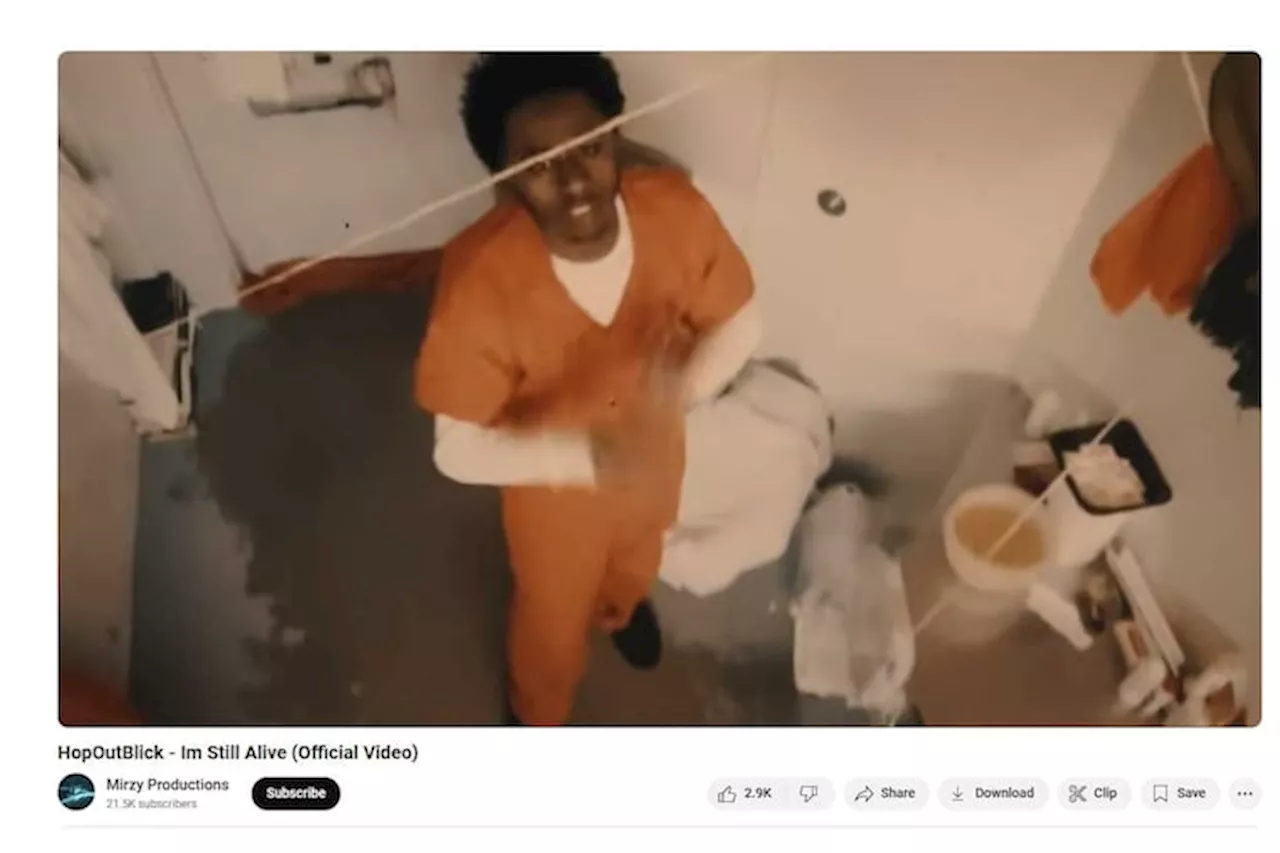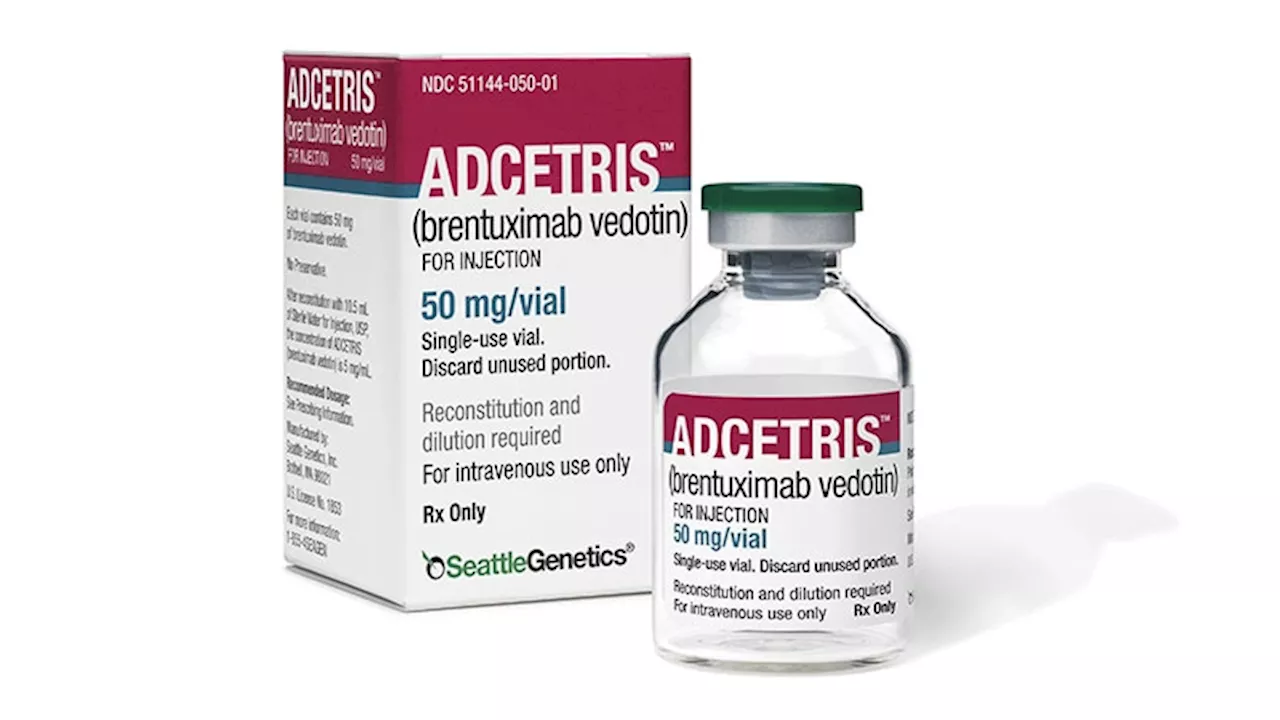The U.S. Food and Drug Administration (FDA) has approved Brentuximab vedotin in combination with lenalidomide and rituximab for the treatment of relapsed or refractory large B-cell lymphoma (LBCL) in patients who are ineligible for stem cell transplant or CAR T-cell therapy.
The U.S. Food and Drug Administration (FDA) has granted approval to Brentuximab vedotin in combination with lenalidomide and rituximab for the treatment of relapsed or refractory large B-cell lymphoma ( LBCL ) in patients who are ineligible for stem cell transplant or CAR T-cell therapy. This approval marks a significant advancement for patients with this aggressive form of cancer who lack access to these potentially curative therapies.
The FDA's decision is based on the results of a Phase III clinical trial involving 230 patients with diffuse large B-cell lymphoma (DLBCL) not otherwise specified (NOS), DLBCL arising from indolent lymphoma, or high-grade B-cell lymphoma (HGBL). Patients were randomly assigned to receive either lenalidomide and rituximab (R2) plus brentuximab vedotin (BV) or placebo (Pbo) until disease progression or unacceptable toxicity. The trial demonstrated a significant improvement in overall survival (OS) with BV+R2 compared to Pbo+R2, with a median OS of 13.8 months versus 8.5 months, respectively (hazard ratio, 0.63). The benefit in OS was consistent across different levels of CD30 expression, a protein often found on the surface of lymphoma cells. Additionally, BV+R2 showed a longer median progression-free survival (PFS) of 4.2 months compared to 2.6 months with Pbo+R2 (hazard ratio, 0.53), and a significantly higher objective response rate (ORR) of 64.3% versus 41.5% in the BV+R2 and Pbo+R2 arms, respectively.
FDA Approval Brentuximab Vedotin Lenalidomide Rituximab LBCL Relapsed Or Refractory Lymphoma Stem Cell Transplant CAR T-Cell Therapy
United States Latest News, United States Headlines
Similar News:You can also read news stories similar to this one that we have collected from other news sources.
 AI in cell research: Moscot reveals cell dynamics in unprecedented detailThanks to a new technology called Moscot ('Multi-Omics Single-Cell Optimal Transport'), researchers can now observe millions of cells simultaneously as they develop into a new organ -- for example, a pancreas.
AI in cell research: Moscot reveals cell dynamics in unprecedented detailThanks to a new technology called Moscot ('Multi-Omics Single-Cell Optimal Transport'), researchers can now observe millions of cells simultaneously as they develop into a new organ -- for example, a pancreas.
Read more »
 Dragon Ball Super: Super Hero - Cell Max's Existential Crisis & MoreDragon Ball Super: Super Hero brings back Frieza and Cell, exploring the latter's future form, Cell Max. The story features a hilarious scene where original Cell experiences an existential crisis upon seeing his monstrous future self. The movie also introduces Dr. Hedo, a brilliant scientist who creates Cell Max, and hints at potential future collaborations with heroes.
Dragon Ball Super: Super Hero - Cell Max's Existential Crisis & MoreDragon Ball Super: Super Hero brings back Frieza and Cell, exploring the latter's future form, Cell Max. The story features a hilarious scene where original Cell experiences an existential crisis upon seeing his monstrous future self. The movie also introduces Dr. Hedo, a brilliant scientist who creates Cell Max, and hints at potential future collaborations with heroes.
Read more »
 Philly Rapper Films Music Video From Jail Cell, Raising Contraband ConcernsKyzir Reeves, a rapper awaiting trial for murder, released a music video filmed inside his jail cell. The video raises concerns about contraband within the Philadelphia jail system, which has struggled with a decline in searches due to staffing shortages.
Philly Rapper Films Music Video From Jail Cell, Raising Contraband ConcernsKyzir Reeves, a rapper awaiting trial for murder, released a music video filmed inside his jail cell. The video raises concerns about contraband within the Philadelphia jail system, which has struggled with a decline in searches due to staffing shortages.
Read more »
 Starlink Direct-to-Cell Service Expands to iPhones with T-Mobile BetaSpaceX's Starlink satellite internet service has partnered with T-Mobile to offer direct-to-cell phone connectivity via satellite. This service, initially tested with Samsung Galaxy phones, will now be available to iPhones in beta, expanding access to reliable communication in remote areas.
Starlink Direct-to-Cell Service Expands to iPhones with T-Mobile BetaSpaceX's Starlink satellite internet service has partnered with T-Mobile to offer direct-to-cell phone connectivity via satellite. This service, initially tested with Samsung Galaxy phones, will now be available to iPhones in beta, expanding access to reliable communication in remote areas.
Read more »
 New Insights into Cell Death and Senescence in CancerRecent research reviews the latest findings on the interaction between cell death and cellular senescence in cancer, highlighting the role of aging cells in promoting tumor growth. The study explores the potential of developing drugs that selectively target these cells or inhibit the secretion of cancer-promoting substances.
New Insights into Cell Death and Senescence in CancerRecent research reviews the latest findings on the interaction between cell death and cellular senescence in cancer, highlighting the role of aging cells in promoting tumor growth. The study explores the potential of developing drugs that selectively target these cells or inhibit the secretion of cancer-promoting substances.
Read more »
 A Tiny Pocket on a Protein Controls the Order of Cell DivisionA new study from the University of Konstanz reveals how a small binding pocket on cyclin B proteins ensures the accurate sequence of events during cell division. Disruptions to this pocket can lead to errors in chromosome separation and other cellular malfunctions, potentially contributing to diseases like cancer and infertility.
A Tiny Pocket on a Protein Controls the Order of Cell DivisionA new study from the University of Konstanz reveals how a small binding pocket on cyclin B proteins ensures the accurate sequence of events during cell division. Disruptions to this pocket can lead to errors in chromosome separation and other cellular malfunctions, potentially contributing to diseases like cancer and infertility.
Read more »
